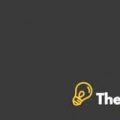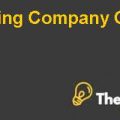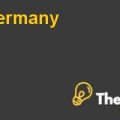
INTRODUCTION
The role of the CEO is becoming increasingly complex, uncertain and challenging than ever before. Aside from managing the business, the CEO has to deal with an ever-widening range of key stakeholders, pay due attention to the corporate governance and legal issues and ensure that the business has a sound financial management. The job is becoming more demanding and challenging than ever before, especially during a time of economic downfall, the CEO is required to have a strong financial capability(Hambrick, 1994).
In today’s business environment, it is hard to justify an investment in the finance function. However,financial leadership is often what a corporation requires. Leading CFOs know that a strong and effective finance function is vital to help and guide the organizations in their difficult times. Therefore, more companies are turning Chief Finance Officer (CFO) to the position of Chief Executive Officer (CEO) of the company. However, a CEO possesses various qualities, influential personality and power that are not always in line with the training and experiences of the CFO. Nonetheless,the CFO of the company also comprises of qualities that help to achieve a long-term growth of the company(Dickinson, 2001).
CFOs play an important role in accelerating the strategic growth and profits across the enterprise. Moreover, the CFO is qualified to provide significant insight to their company, participate in the broader corporate vision, current and future investments, and produce strategic transformation. Some of the leading people that possess influential personality and power and lead the companies to achieve their competitive and customers’ advantage include Robert Moses, Henry Kissinger, Lyndon B. Johnson, Roizen’s, Anita Roddick, and John Dasburg, the CEO of Burger King and former CFO of Marriott International.
ANALYSIS
In today’s globalized world, it is becoming more common to find organizations that are promoting CFOs to become their company’s CEO. However, the real challenge facing today’s CFO is not improving their business and financial expertise, but to acquire professional and personal skills to manage the complex and vast business operations as a CEO(Peterson, Smith, & Martorana, 2003).
A good CEO possesses multiple qualities and powers, such as leadership skills, interpersonal skills, communication skills, building positive relationship expertise power, coercion and reward power.An effective CEO must be an all-rounder in terms of making strategic decisions, creating visions, skills to motivate others and build consensus with the key stakeholders.
On the other hand, the CFO has limited experience in running the business effectively and how things can be done. Moreover, most of the CFO shave the lack of interpersonal and communication skills and knowledge of leading the organization because they are not socially oriented and interested. They are more likely to work with numbers, which usually does not translate well into working with humans. Furthermore, a CFO has little experience and abilities to build a network or relationship with others.
However, the CEO can be successful by selling the vision and developing a strategic plan, but an effective CFO works out the details and uses analytical skills to accomplish the task and the goal of the company. One of the significant qualities of the CFO is to predict the future, manage day-to-day operations, strategic thinker, financial analysis, system and reporting, compliance measurement and help the company to stabilize the economy and market conditions.
Moreover, the CFO has proficiency in three essential roles such as compliance stewardship to manage day-to-day requirements of accounting, periodic obligations of regulatory compliance and providing fiscal oversight that help to sustain and improve the corporate processes and infrastructure. Secondly, the CFO has a pragmatic strategy to maintain the shareholders’ value and align opportunities with the necessary resources to complete them, and provide robust planning and forecasting in order to mitigate the future risk of the company.
Third, as a business partner anticipating changes in the business and using techniques to drive continuous improvements is imperative. However, in the globalized world and fierce competition, these qualities and roles are not enough to become an effective CEO. Therefore, it is highly important for the CFO to possess various qualities and powers, in order to empower the employees and sustain the long-term growth of the company.From Cfo To Ceo The Change Of Role In The Company Case Solution
ACTION PLAN
A strong and effective financial function is important to guide organizations in their difficult times. Moreover, if the CFO is a true business partner, the company far better positioned CFO as a CEO and helps ensure positive outcomes for the organization. However, it is important to develop an action plan to overcome the challenges and help CFO to build qualities and power to become an effective CEO as well as a good leader..................................
This is just a sample partial case solution. Please place the order on the website to order your own originally done case solution.













